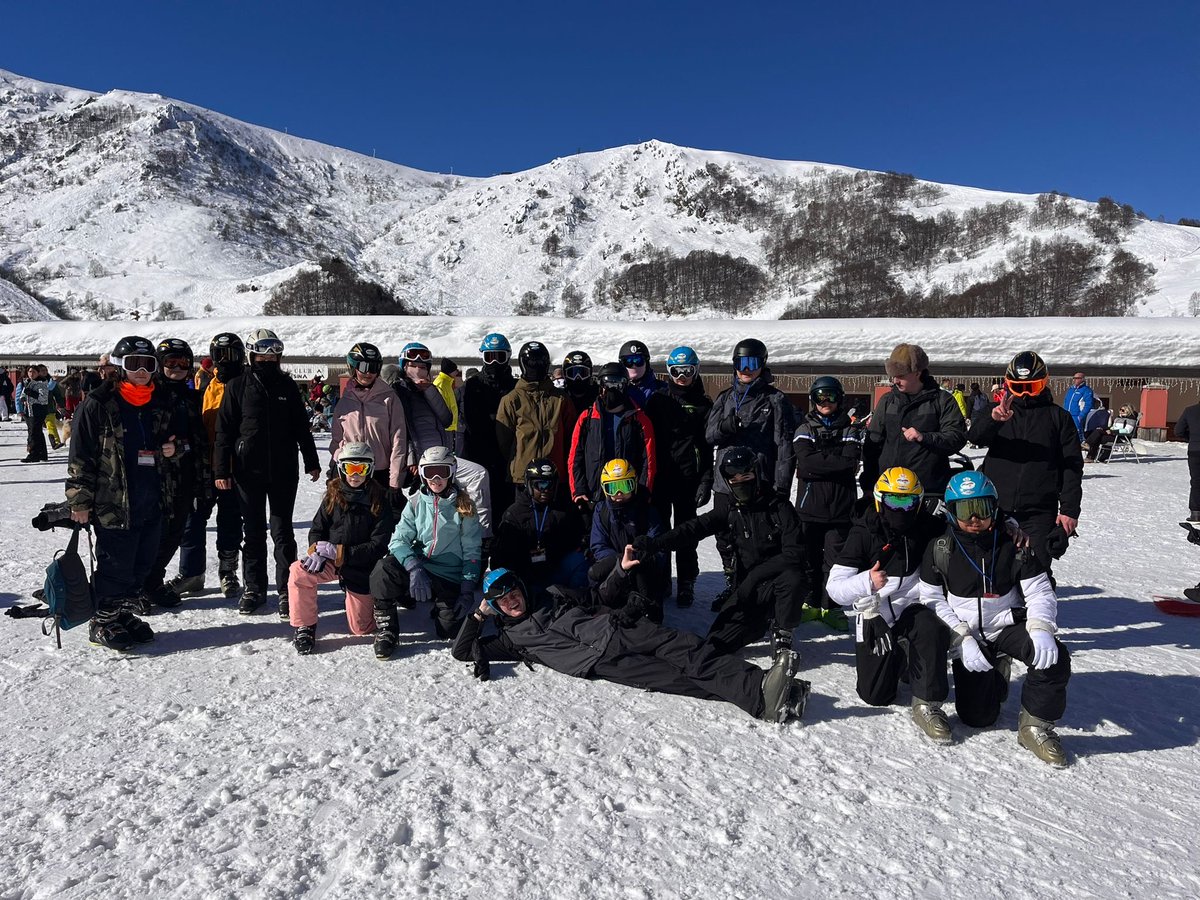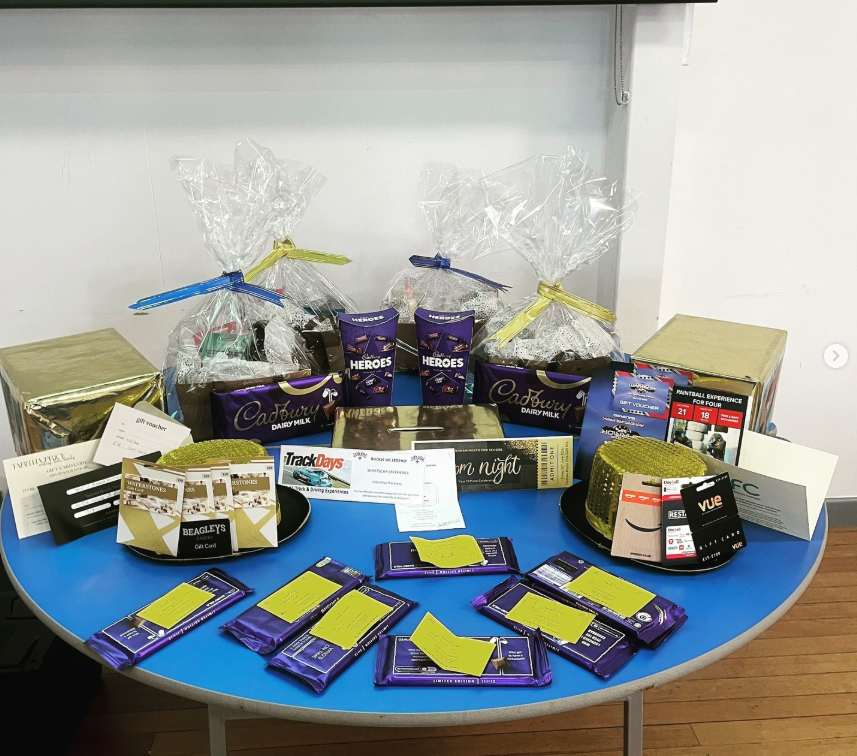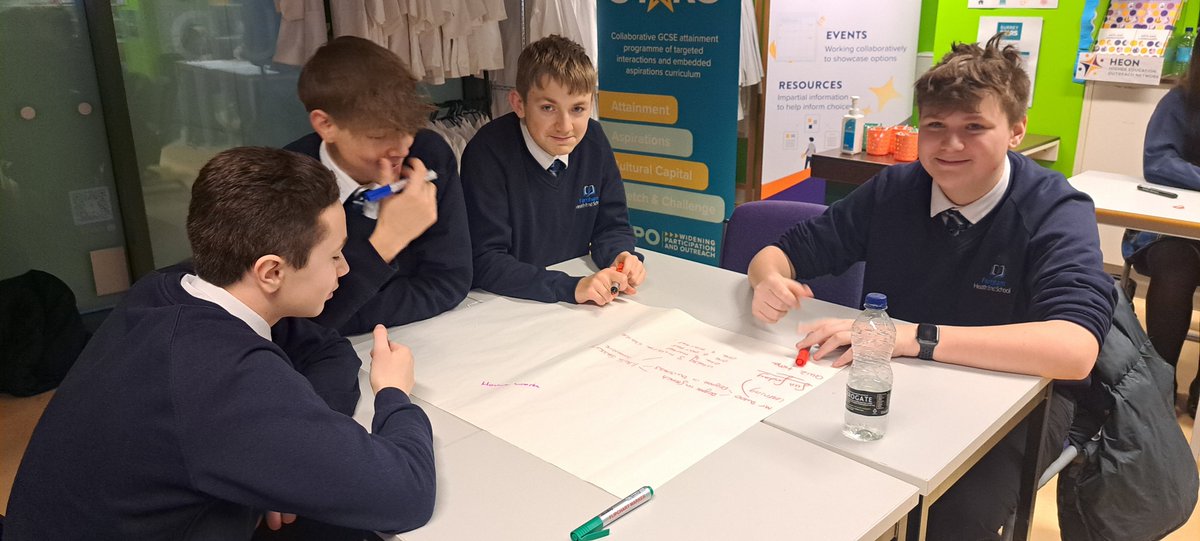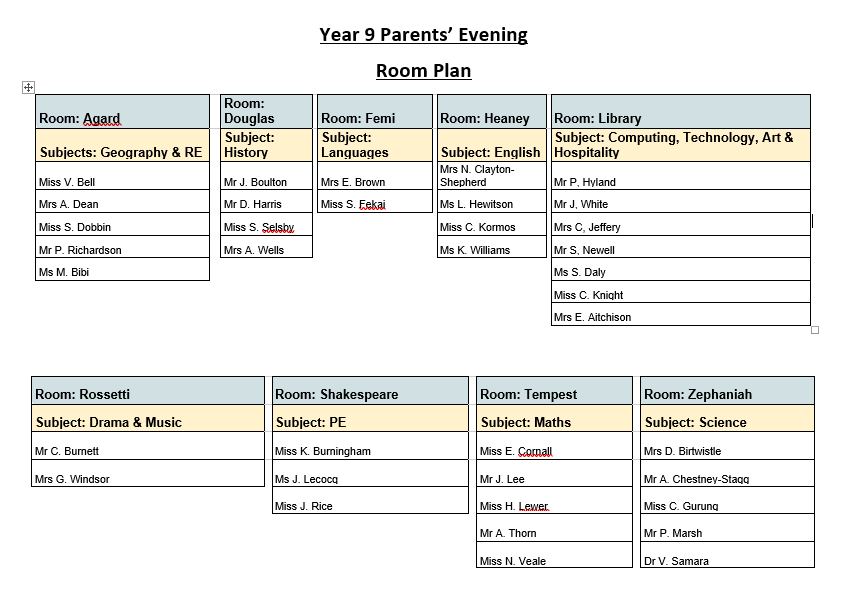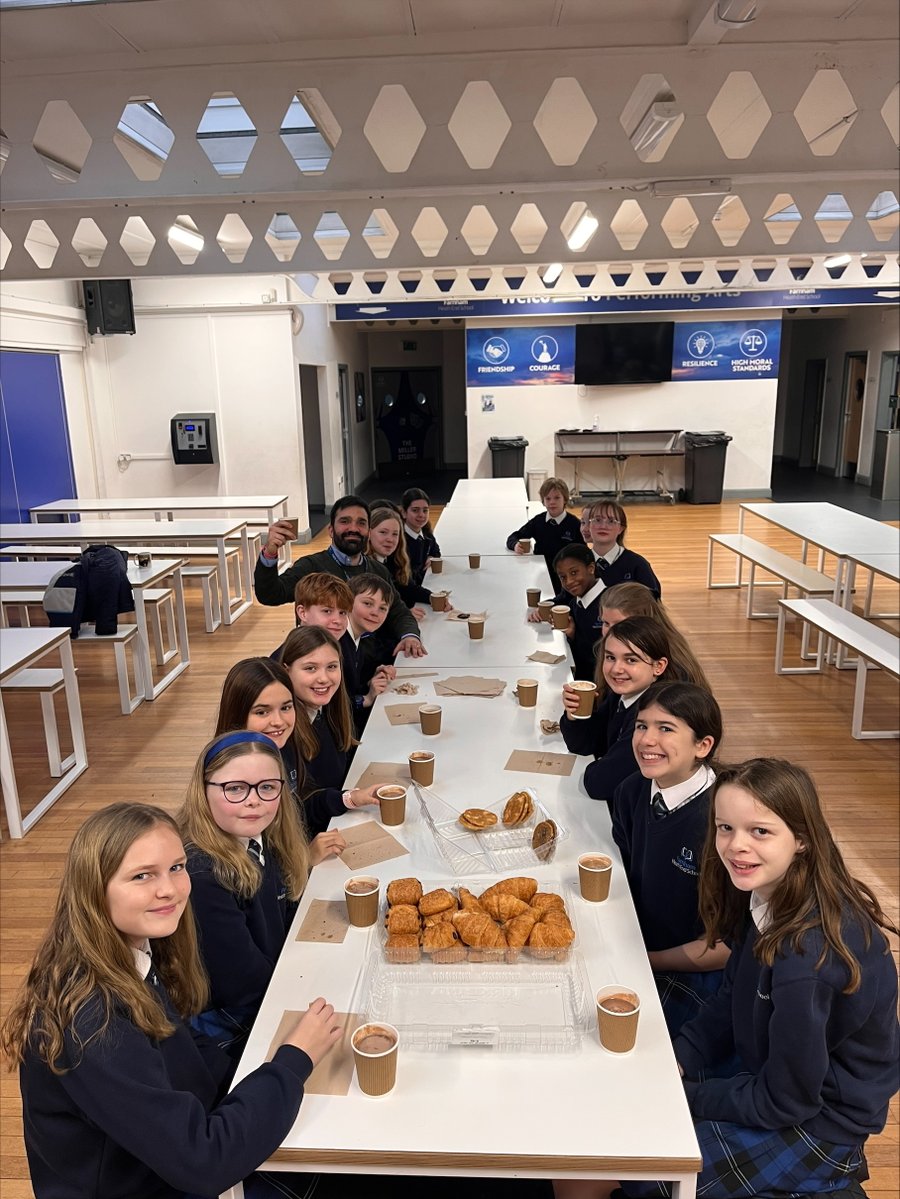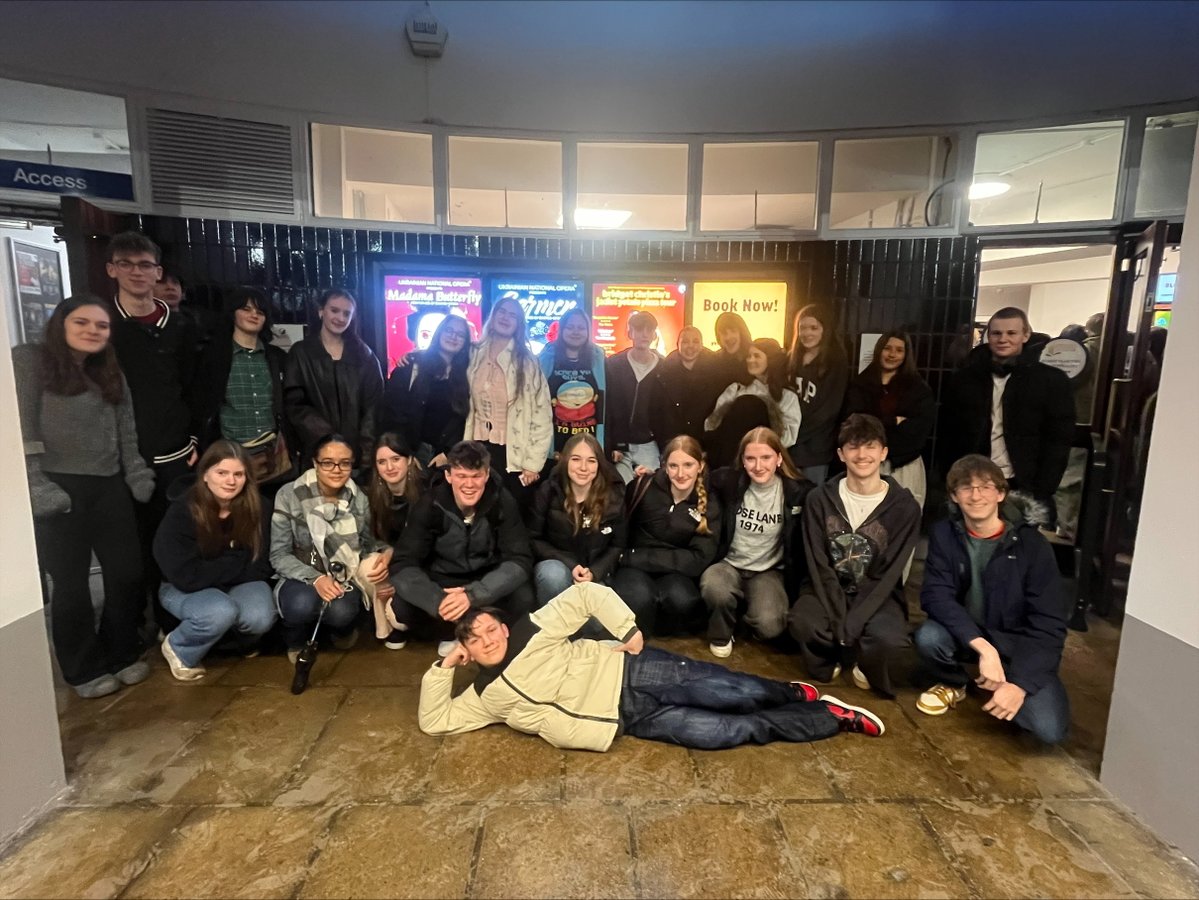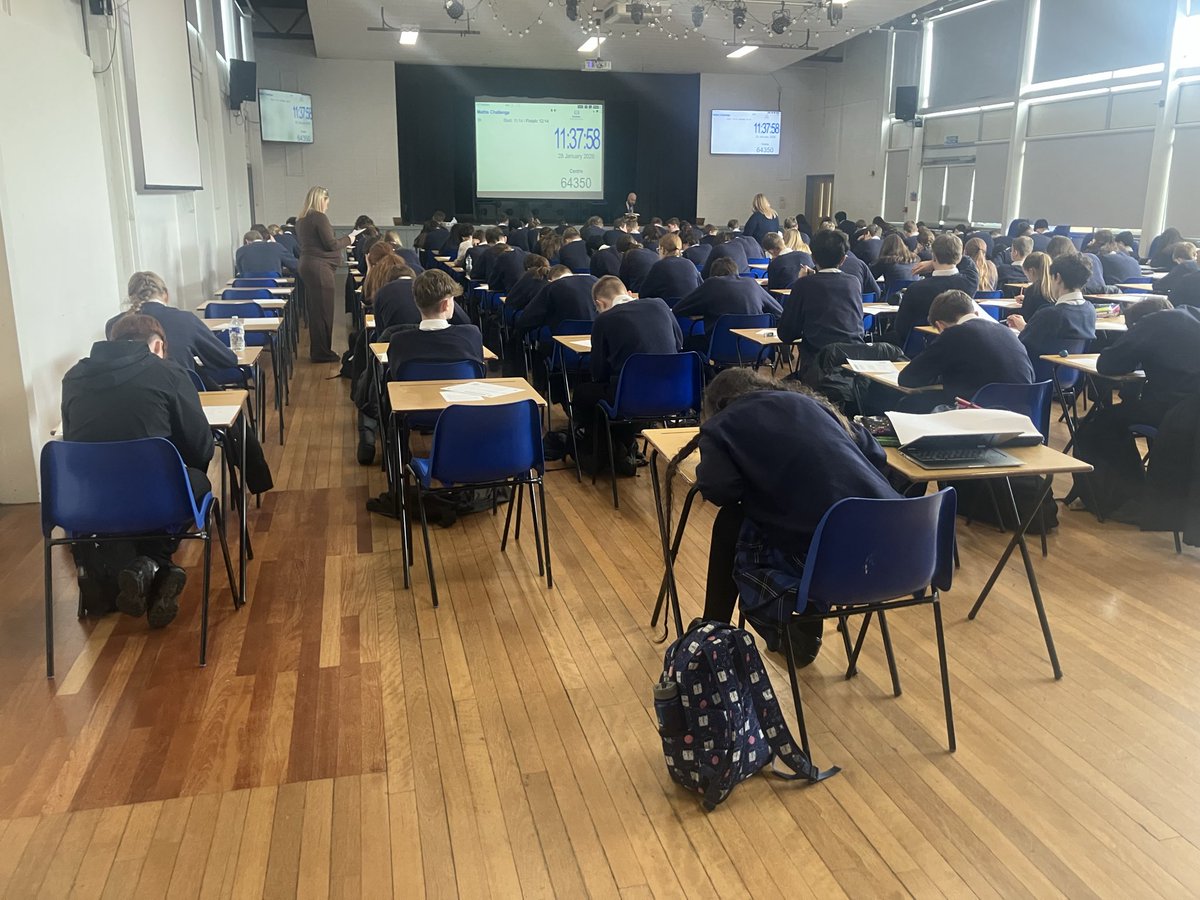 @TeamFHES - 24/02/2026students have returned from an incredible half term at Mondolè Ski in Italy. From mastering the slopes of Prato Nevoso to exploring the heights of Artesina, the progress and school spirit on display were world-class. A huge well done to everyone for making it a trip to remember.
@TeamFHES - 24/02/2026students have returned from an incredible half term at Mondolè Ski in Italy. From mastering the slopes of Prato Nevoso to exploring the heights of Artesina, the progress and school spirit on display were world-class. A huge well done to everyone for making it a trip to remember.Subject Information - Drama
VISION / AIM
The Drama department endeavours to ignite passions and cultivate creativity and confidence as we explore, analyse and evaluate real life themes.
The Drama department's vision is to inspire a love for theatre and performance and to create a culture where we celebrate and appreciate the amazing creativity of our students. Our aim is to make learning new Drama skills and techniques, and exploring the world of theatre interesting, fun and engaging for all.
We explore a wide variety of genres, styles, practitioners and texts from different cultures and time periods, which aim to be challenging, stimulating and inspiring. Drama develops communication, confidence, critical thinking and teamwork; skills which can help young people flourish. Drama is also a creative outlet, where we can explore and learn so much about ourselves and the world around us.
We offer a rich variety of cultural experiences and opportunities, for example, trips to the theatre at KS4, as well as our annual school production and KS3 Drama clubs.
Follow in Instagram: @FHESPerformarts
Resources and support materials can be found on Google Classroom.
Further information can be requested from Mrs G Windsor, Head of Department, gwindsor@fhes.org.uk
CURRICULUM OVERVIEW
|
|
|
Autumn 1 |
Autumn 2 |
Spring 1 |
Spring 2 |
Summer 1 |
Summer 2 |
|
KS3 |
Year 7 |
Mime & Silent Movies |
Greek Theatre |
Devising Anne Frank |
Abstract Physical Theatre |
Shakespeare: Macbeth |
|
|
Year 8 |
Practitioner: Brecht |
Shakespeare: Romeo & Juliet |
Scripted DNA |
Craig & Bentley |
Theatre Roles & Terminology |
||
|
Year 9 |
Practitioners: Frantic & Berkoff |
Devising Stimuli |
Practitioners: Stanislavski |
Scripted |
Live review: Things I Know To Be True |
||
|
KS4 |
Year 10 |
Practitioners: Frantic, Berkoff and Brecht |
Component 2: Devising: Introduction of Stimuli |
Component 2: Devising Performance Exam & Logbooks (40%) |
Component 1: Set Text: Blood Brothers |
||
|
Year 11 |
Component 1: Live Theatre Review: Frankenstein |
Component 1: Blood Brothers Revision |
Component 3: Scripted Performance Exam (20%)
|
Component 1: Live Theatre Review: Frankenstein Blood Brothers Revision |
Component 1: Revision Section A - Role in theatre Section B - Blood Brothers Section C - Live Review |
Component 1: GCSE Written Exam (40%) |
|
KEY SKILLS
|
|
Year 7 |
Year 8 |
Year 9 |
Year 10 |
Year 11 |
|
To perform with conviction and confidence |
All students perform/ spotlight performances at key intervals each lesson and at the end of the SOL to smaller groups. |
All students perform/ spotlight performances at key intervals each lesson and at the end of the SOL to the entire class. |
All students sustain their roles as they perform/ spotlight performances at key intervals each lesson and at the end of the SOL to the entire class. |
AO1: Create and develop ideas to communicate meaning for theatrical performance.
|
AO1: Create and develop ideas to communicate meaning for theatrical performance.
|
|
Cultivate creativity within practical exploration of devised and scripted performances |
Exploration of a range of performance styles and theatrical skills. |
Exploration of a range of practitioners and theatre styles. |
Application of a range of practitioners, performance styles and theatrical skills. |
Students must develop their ability to create and communicate meaning and realise artistic intentions within devised drama.
AO1: Create and develop ideas to communicate meaning for theatrical performance. |
Students must develop their ability to create and communicate meaning and realise artistic intentions within devised drama.
AO1: Create and develop ideas to communicate meaning for theatrical performance. |
|
To describe the acting skills used in performances |
Verbal feedback of performances in class |
Written feedback of peer performances and personal reflections. |
Written feedback of peer performances and personal reflections in more depth. |
AO2: Apply theatrical skills to realise artistic intentions in live performance. |
AO2: Apply theatrical skills to realise artistic intentions in live performance. |
|
To analyse key performance skills in depth with justification |
Verbal feedback of performances in class |
Written feedback to explain why an actor performed in a certain way and what it communicates to an audience. |
Written feedback to explain why an actor performed in a certain way and justify what it communicates to an audience. |
AO3: Demonstrate knowledge and understanding of how drama and theatre is developed and performed. AO4: Analyse and evaluate their own work and the work of others. |
AO3: Demonstrate knowledge and understanding of how drama and theatre is developed and performed. AO4: Analyse and evaluate their own work and the work of others. |
|
To evaluate coherently how a performance had an impact on the audience. |
Verbal feedback of performances in class |
Written feedback to explain how a performance made them feel as an audience member. |
Written feedback to explain how a performance made them feel as an audience member and how convincing the actor was in their role. |
AO4: Analyse and evaluate their own work and the work of others.
|
AO4: Analyse and evaluate their own work and the work of others.
|
GCSE DRAMA EXAM BOARD
|
Exam Board |
AQA |
|
|
NEA |
Component 2: Devising Drama |
|
|
Component 1 |
Understanding Drama Written exam |
Stage types, theatre roles, stage positions. Set text: Blood Brothers Live theatre review |
|
Component 2 |
Devised performance and 2,500 word log book |
Devised performance in response to a stimulus, and written log book reflecting on the process. |
|
Component 3 |
Texts in practice Performance exam |
Performance of x2 extracts from a chosen play in front of a visiting examiner. |
|
Link to the Specification |
||


